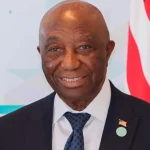Leading Nigerian fintech platform OPay has vowed to take legal action against a Benue-based prophet, Aliyu Barnabas, who claimed that the OPay mobile app would “crash” between December 2025 and January 2026.
The company has categorically dismissed the prophecy as false and misleading, describing it as a deliberate attempt to cause panic among users.
In a response to a post by Tending Explained on X (formerly Twitter), a page known for explaining viral trends — OPay wrote:
“Kindly be informed that the circulating video by the said Prophet Aliyu Barnabas of Mercy and Grace Deliverance Ministry is false and misleading.”
The fintech urged customers to disregard the prophecy, emphasizing that OPay is a licensed, regulated, and NDIC-insured financial institution operating under Nigeria’s fintech laws.
Background of the Claim
The controversy began after a viral video surfaced on social media showing Prophet Aliyu Barnabas of Mercy and Grace Deliverance Ministry, Ukum, Benue State, predicting that OPay would “close down” by January 2026.
In the video, the prophet claimed OPay was “demonic” and described it as a “ritual.” He alleged that by December 2025, users would begin facing withdrawal issues, and by January 2026, the app would be inaccessible.
He said:
“OPay is about to close down. OPay is a ritual. Everybody will wake one day to find their money gone. It’s going to happen between December to January next year.”
The prophet further alleged that the fintech would later ask customers to verify their identities again before “eventually closing down.”
Despite the viral traction, OPay has reaffirmed its financial stability and dismissed all claims as baseless and unsubstantiated.
OPay Reassures Customers of Safety and Regulation
OPay emphasized that it is not a Ponzi scheme but a regulated digital banking and payment platform supervised by the Central Bank of Nigeria (CBN) and insured by the Nigeria Deposit Insurance Corporation (NDIC).
The company stated that its operations remain strong, and customer deposits are protected under Nigerian financial regulations.
“Our platform is fully licensed, regulated, and insured. Customers can continue to transact safely using OPay,” the company reiterated.
History of Similar Claims
This is not the first time OPay has faced rumors of an impending “crash.”
- In late 2023, another prophecy circulated online predicting that the platform would shut down, which later proved false.
- In early 2024, a different prophet claimed OPay would not crash, a direct contradiction to the earlier prophecy.
- Earlier in 2023, social media was flooded with claims that the CBN had suspended OPay and PalmPay. However, the CBN’s Acting Director of Corporate Communications, Isa AbdulMumin, promptly debunked the report, calling it “fake news.”
About OPay
OPay was originally founded as Paycom Nigeria Limited in 2013 and rebranded to OPay in 2018 following its acquisition by Opera Software. Since then, it has grown into one of Nigeria’s largest fintech platforms, offering services such as payments, savings, loans, and debit cards.
As of early 2024, OPay’s valuation stands between $2.7 billion and $3 billion, making it one of Africa’s most valuable fintech companies.
Conclusion
With this latest move, OPay is making it clear that it will not tolerate false claims capable of undermining public trust or causing panic among users. The fintech giant continues to maintain its position as a trusted, regulated, and secure financial platform, serving millions of Nigerians daily.











